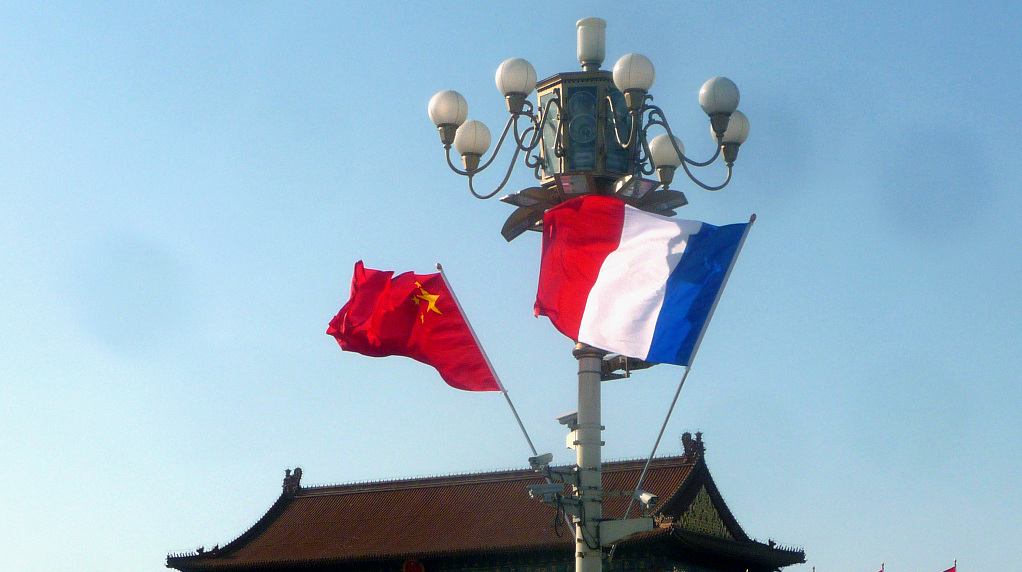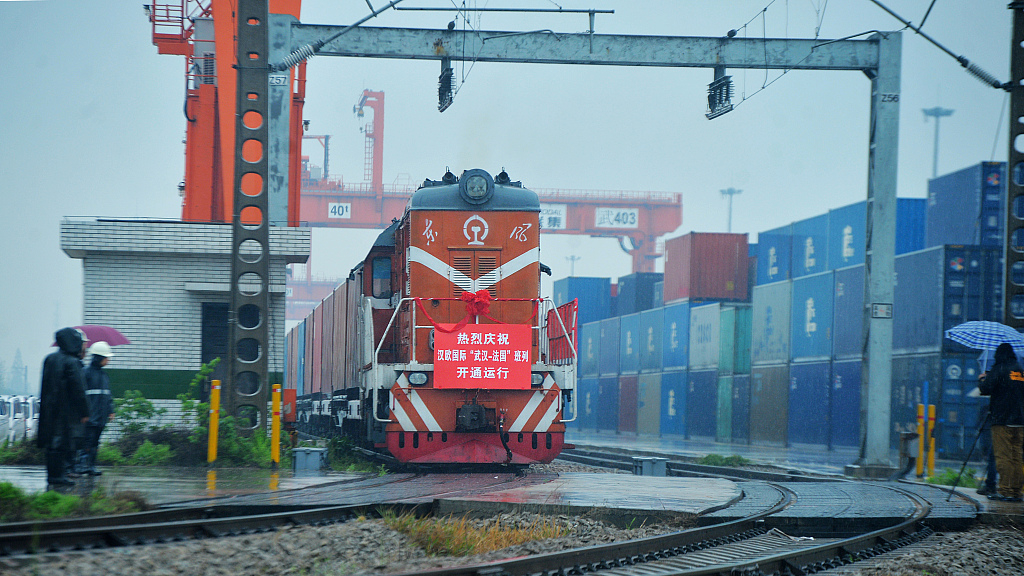
20:49, 01-Apr-2019
France yet to sign BRI deal with China. Should it be of concern?

France was the third and final leg of Chinese President Xi Jinping's six-day Europe tour, which he concluded earlier this week. As China's first comprehensive strategic partner in the West, France has agreed to strengthen cooperation with China on regional and global affairs under multilateral frameworks. But Paris has yet to sign a memorandum of understanding on the Belt and Road Initiative (BRI) like Italy did.
So where exactly does France stand from the China-proposed project?
"France is taking the position of negotiation," said Prof. Douglas Yates from the American Graduate School in Paris. It is a good sign as it shows France has ambitions, and some preconditions that it is willing to negotiate with China, he said.
Going deeper into France's concerns, Yates said Paris did not follow Rome's suit because it "wants a multilateral signature and wants to do a deal between the EU and China."
President Xi's visit coincided with the 55th anniversary of the establishment of diplomatic ties between China and France and the 15th anniversary of the bilateral comprehensive strategic partnership. President Xi and his French counterpart Emmanuel Macron vowed to forge a more solid, stable, vibrant China-France partnership.
On March 25, France signed 15 business contracts with China, worth billions of euros, including a 300-plane order with Airbus and a one-billion-euro contract for EDF to build an offshore wind farm in China.
The two countries also struck an agreement to lift an embargo on French poultry exports.
Looking into the future, Xi said the two countries should not only explore the "source of flowing water" in market, but also facilitate the "river channels" in policies. The two countries also signed bilateral agreements including a third-party market cooperation document.
"It turns competition into cooperation," said Prof. Wang Yiwei, a Jean Monnet Chair at the Research Center for European Studies at Renmin University of China, when commenting on third-party cooperation.
China is developing very fast and its cooperation with areas including Africa, where France traditionally has a huge influence, has been greatly enhanced.
A third-party market cooperation would help combine the advantages of China and France, Wang said.
In June 2015, the Chinese and French governments officially issued the "Sino-French Joint Statement on Third-Party Market Cooperation," in which they proposed the concept of "third-party market cooperation" for the first time, making France the first country to start such a cooperation with China.

"In terms of third-party market cooperation, China and France are on the same page," Yates said, "I believe they want to have co-development." He gave the example of Sub-Saharan Africa where China has helped lift local people out of poverty by investing in infrastructure. "It is a good example of win-win," he said.
When explaining the difference between third-party market cooperation and the Belt and Road Initiative, Prof. Wang said, "The third-party market cooperation was put forward earlier than the BRI. It particularly focuses on the cooperation with G7 nations to discover developing countries' markets."
However, talking about the obstacles in China-France cooperation, Prof. Wang mentioned the distrust existing in the third-party local communities as they tend to view it as a "collaboration of old and new colonialism."
Prof. Yates agreed on his point, saying that China's investment in Africa has been normalized. Chinese and European businesses are working on big energy and infrastructure projects and a series of partnership had been established.
SITEMAP
Copyright © 2018 CGTN. Beijing ICP prepared NO.16065310-3
Copyright © 2018 CGTN. Beijing ICP prepared NO.16065310-3